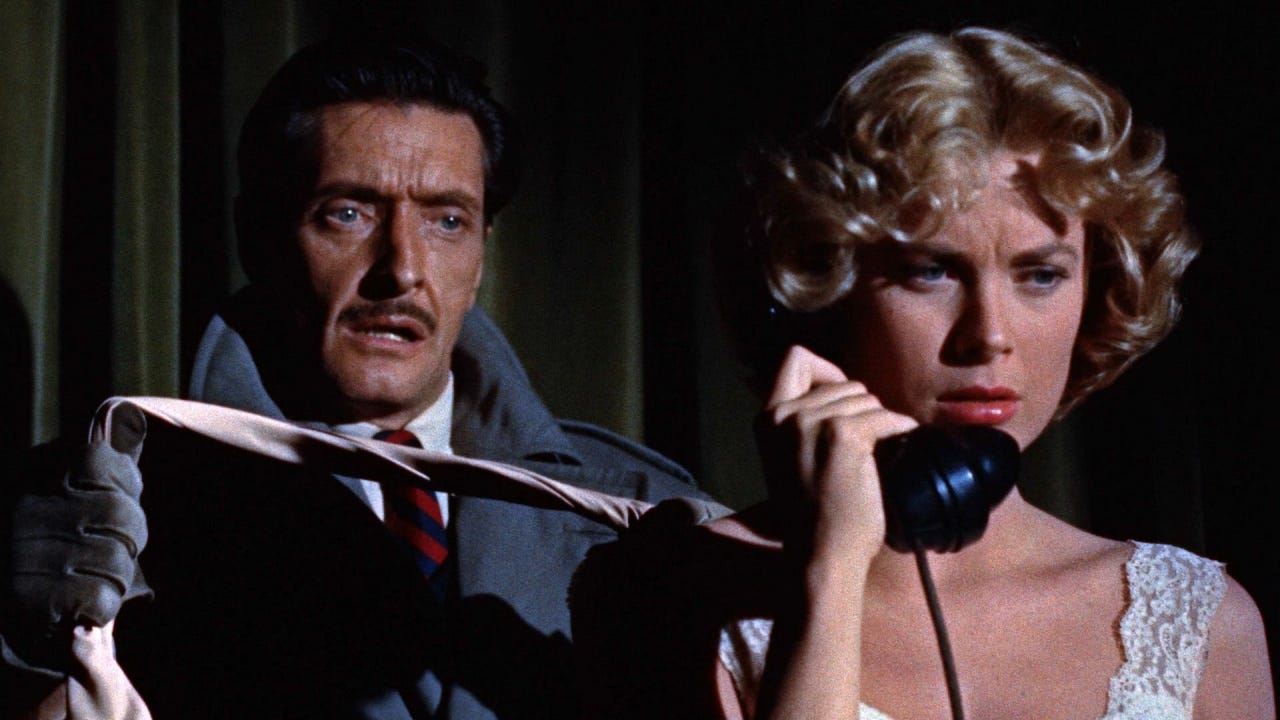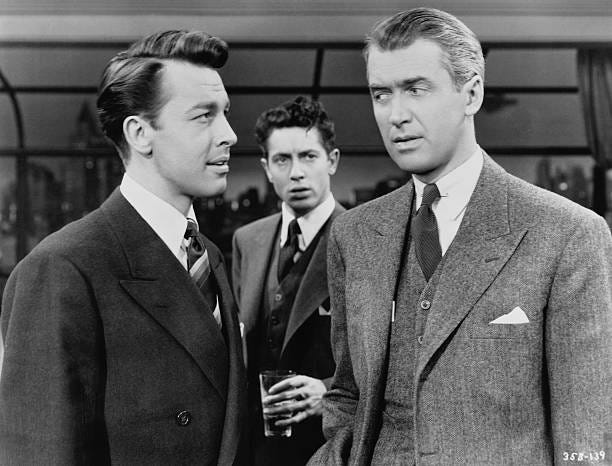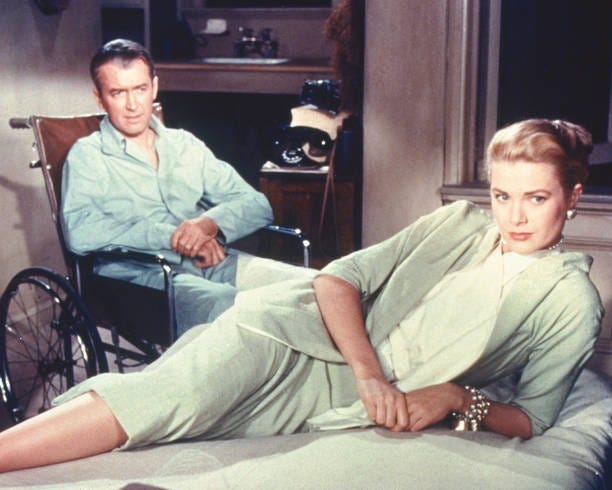(Spoilers for Dial M for Murder, Rope, and Rear Window)
Growing up, I was aware of Alfred Hitchcock, and not just because we share a birthday (albeit, almost a century apart). I knew he was a famous english director from “the olden days”, directed 1960’s Psycho that everyone seemed to rave about. I’d been spoiled about the twist many years before I sat down to watch it but that didn’t dull my enjoyment. I didn’t absolutely love it but I appreciated it and wouldn’t not watch it again if it happened to be on the tell while I was scrolling through the channels.
But it didn’t compel me to investigate more of his work. Sure, I’d heard of Rear Window, Dial M For Murder and some of the other titles, but I couldn’t tell you what they were about (other than the former featured a window, and the latter presumably had a murder in it). There were too many other shows, movies and books taking up my attention, back then.
Dial M For Murder (1954): What compelled me to buy tickets for a performance of Dial M for Murder as a Mother’s Day present a few years back? I can’t say. I knew my mum rarely went to the theatre. And I didn’t go as much as I liked, so I took a punt.
A few weeks before the UK locked down to due Covid-19, my mum and I took our seats in Edinburgh’s King’s Theatre to watch Sally Bretton (Not Going Out, Beyond Paradise) and Tom Chambers (Holby City, Casualty) take the lead roles in the play, and we were going in blind. I personally didn’t know what the play was about other than the aforementioned murder and presumably a telephone.
Dear reader, I loved it. Affairs, keys, blackmail and nefarious husbands - it was great! Afterwards I decided I really needed to see the original. When I eventually did - renting it from Amazon Prime a little while later - I thought the movie was fantastic. Ray Millard was brilliant as the calm-but-calculated Tony Wendice, Grace Kelly was mesmerising as poor Margot who really goes through it during the movie. John Williams as Chief Inspector Hubbard brought a touch of humour to the proceedings, and despite now knowing the plot from seeing the play, I was willing him on as he worked out what had gone on.
Rope (1948): The first time I’d heard of Rope was in 2009 when Steve Pemberton and Reece Shearsmith paid homage by dedicating a whole episode of Psychoville to it. All I knew about the 1948 movie was that it was filmed in one long single take (or near enough). I only learned it was based on a true story later on. After having enjoyed the original Dial M for Murder, I thought I would check this one out, too.
The very first thing we see in the movie is a murder and the two young killers disposing of the body by secreting it within a lidded table before hosting a party in the very room the table is in. One of the killers, Brandon (played by John Dall) is cool-under-pressure - perhaps he’s related to Tony Wendice - and revels in the fact that the guests - some of whom are relatives of the newly-deceased - are ignorant of what has just gone on. The other killer, Phillip (Farley Granger) is somewhat less relaxed than his partner in crime, especially when their old tutor, Rupert Cadell (played by James Stewart - more on him soon) becomes suspicious about the whereabouts of the missing man and starts asking questions. The ending of the movie is similar to Dial M for Murder - the truth is uncovered and everybody seems quite relaxed as they wait to be arrested.
Rear Window (1954): This movie has been parodied a lot, not least by The Simpsons where Bart breaks his leg so is stuck in his room, looking out the window with a set of binoculars. Of the three Hitchcock movies, this might pip the others to the post of being my favourite. The chemistry between the three leads: James Stewart (L.B. ‘Jeff’ Jeffries), Grace Kelly (Lisa Fremont) and a scene-stealing Thelma Ritter as Stella, the outspoken nurse is fantastic to watch - they are ripe for having their own weekly amateur detective series. But it’s not just the leads that make this a great movie - it’s the attention to detail with the characters in the flats (or apartments) opposite. They could have all easily been non-characters, apart from the suspicious Mr Thorwald and his wife. But no matter how brief we see them, the neighbours are given some personality of their own; whether it’s the newly-weds eager to get some privacy, or the young woman with a series of admirers. We also learn to care about Ms Lonely-Hearts, a woman who seems so bereft of love she almost results to extreme measures before hearing music playing from another apartment and thankfully changes her mind.
And the plot (based on a 1942 short story by Cornell Woolrich) is none too shabby, either. A bored, incapacitated Jeff, stuck in his apartment in the midde of a heatwave, becomes suspicious of his neighbour, Mr Thorwald, across the street after he hears a woman screaming, after which Mrs Thorwald is nowhere to be seen and the husband is acting very suspicious. At first, no one believes Jeff, but they eventually come round to the idea that Mr Thorwald has got rid of his wife, permanently. Unlike the previous two movies, the ending after the climactic scene between Thorwald and Jeff, ends on a light-hearted note, with Jeff now resting with two broken legs in casts.
Hitchcock directed 53 movies, not to mention ones he had a hand in and his TV series, so I’ve only made a very small dent in his work. Tell me which are your favourite Hitchcock-directed movies and which of the other 49 movies of his I should check out next.







North by Northwest is a film of genius. A total must to watch. The Birds is very good, but will put you off ornithology for life.
Great post with lovely reminders to revisit the Master. I saw that performance of Dial M for Murder in Edinburgh too … so good. But I’d have to say my favourite Hitchcock is Notorious followed closely by The Birds.